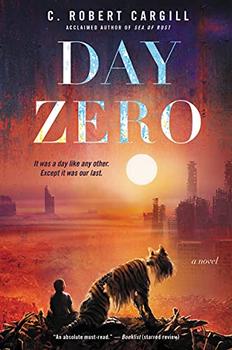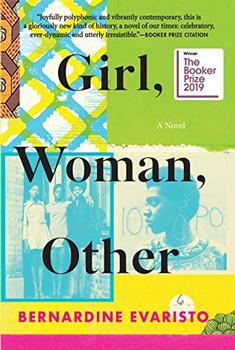Summary | Excerpt | Reviews | Beyond the book | Read-Alikes | Genres & Themes | Author Bio

Jeanette Winterson's futurist sci-fi/alternative history hybrid unfolds in two main timelines. In the first, it's 1816 and Mary Shelley, Percy Shelley, Lord Byron, Byron's doctor Polidori, and Mary's half-sister Claire are vacationing at Lake Geneva. It's raining, they're bored, and Byron prods Mary into writing a horror story that will eventually become Frankenstein. In another timeline, we're transported to post-Brexit England, where a transgender doctor named Ry Shelley falls in love with Victor Stein, a transhumanist scientist determined to unfreeze his mentor's cryogenic head and bring him back to life in a new form. While investigating the potential impact of artificial intelligence on human health, Ry also meets Ron Lord, proprietor of a wildly successful line of sex robots, and Claire, a born-again Christian who finds herself aligned with Ron due to a confluence of unforeseen circumstances. Meanwhile, in a subplot set in 1818 that emerges about halfway through the novel, a mysterious stranger shows up in Bedlam, the infamous English mental institution, claiming to be a character from Mary Shelley's now widely-read book.
The novel flawlessly synthesizes its dual plotlines. The past, present and future are in constant conversation with one another, demonstrating how what we yearn for is often tied to the times we live in and what we're capable of imagining. Yet there are longings that span all time, and there are always individuals who dare to defy the perceived limitations of what's possible. One of the themes in Mary Shelley's Frankenstein (first published in 1818) is the potential for life beyond death, transcending the constraints of the human body. Winterson picks up this narrative thread with her own version of Shelley's anti-hero who seeks to transplant a human brain into a computer.
Though the novel is narrated principally from the third person limited perspectives of Mary and Ry, Winterson allows each of her characters to have a valid voice. Even the sex doll inventor grows sympathetic as he explains his intent to provide companionship to those who would otherwise be utterly and painfully alone. Winterson maintains authorial distance, never injecting her own opinions into the narrative; she trusts readers to evaluate the characters and their motivations on their own. Stein remains mysterious despite a somewhat hastily presented side story involving the mentor whose brain he wishes to reanimate, but the character works because we see him as Ry does—as the inscrutable man that he loves.
For all of its sci-fi conceits, Frankissstein is at heart a dual love story, that of Percy and Mary Shelley, and that of Ry Shelley and Victor Stein. Both are rendered artfully as both passionate and dysfunctional (the novel cleverly explores how these dual qualities in a relationship can feed off one another; for example, Victor's emotional unavailability only makes him more attractive to Ry). Then there is the love Mary Shelley has for her creation, Victor Frankenstein, and the love Victor Stein has for his mentor, even the love Ron Lord has for his dolls. Again, Winterson never judges these different attachments or posits a hierarchy for them.
The magic of the novel is its philosophical daring and imaginative construction. It moves back and forth through time weaving together themes and symbols, and asks bold questions about the relationship between humans and machines. What is a human being? Are transgender people on a similar journey to transhumanists? The former seeking to align their minds and their bodies, and the latter wishing to move beyond the limitations imposed by the human form? Is this the future we're all headed for — one where mortality is flouted by technology and people can live on past death in machine form? Can a machine love? Can a machine love better than a person?
Frankissstein is funny and delightfully weird. The author's penchant for flouting conventions and genre norms has been fully and completely realized in this magnum opus.
![]() This review was originally published in The BookBrowse Review in October 2019, and has been updated for the
November 2020 edition.
Click here to go to this issue.
This review was originally published in The BookBrowse Review in October 2019, and has been updated for the
November 2020 edition.
Click here to go to this issue.

If you liked Frankissstein, try these:

by C. Robert Cargill
Published 2022
In this harrowing apocalyptic adventure - from the author of the critically acclaimed Sea of Rust - noted novelist and co-screenwriter of Marvel's Doctor Strange C. Robert Cargill explores the fight for purpose and agency between humans and robots in a crumbling world.

by Bernardine Evaristo
Published 2019
"Joyfully polyphonic and vibrantly contemporary, this is a gloriously new kind of history, a novel of our times: celebratory, ever-dynamic and utterly irresistible." ―Booker Prize citation
Your guide toexceptional books
BookBrowse seeks out and recommends the best in contemporary fiction and nonfiction—books that not only engage and entertain but also deepen our understanding of ourselves and the world around us.